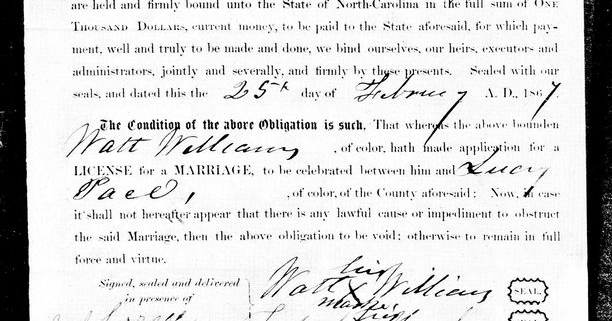Enslaved Persons Project
This month is Juneteenth, and I’ve started volunteering on a project I learned about from the Wake County Parks department, which I follow on social media.
The project is researching slave deeds and other legal documents for the Enslaved Persons Project.
For many Black and African Americans researching their genealogy, the search ends when they hit Colonial times. That’s because in those times, enslaved persons didn’t get birth certificates, marriage licenses, or death certificates — their lives were documented instead in property deeds.
The Enslaved Persons Project is a collaborative endeavor between the University of North Carolina Greensboro Libraries, North Carolina Division of Archives and Records, Wake County Register of Deed, and Shaw University. The goal is to create a centralized database of information about formerly enslaved people contained in bills of sale from Wake County and other counties in the state. Once complete, the community will have access to search these historic documents and high-resolution images.
Slave deeds are bills of sale, deeds of gift, wills, and other documents that record the transfer of ownership of enslaved people. These documents sometimes contain very little information, referring to the enslaved people only as “slaves” or “negroes.” Other deeds, however, include the names, ages, and even occupations or special skills. Because enslaved people were excluded from the kinds of historical records that are used in historical and genealogical research (such as birth and death certificates, marriage licenses, and detailed census information), these documents are some of the only written records of their lives. Transcribing and indexing these thousands of documents will make it much easier for historians and genealogists to find this information.
Eliza
For example, Eliza was enslaved at Oak View in 1841 at the age of 19. After emancipation, she married Reddick Hutchings, and they worked as sharecroppers before purchasing 43 acres of land in 1877.
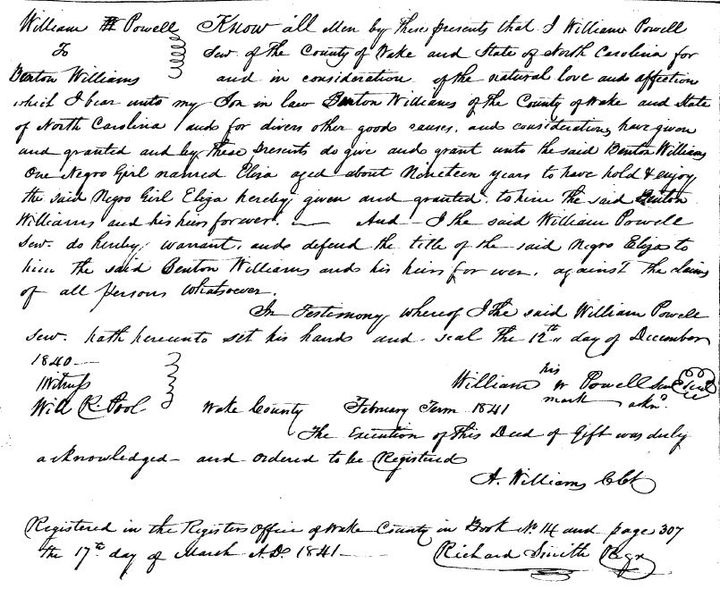
Levy Williams
Levy Williams was seven years old when he was purchased by Benton Williams, along with his mother and two brothers. Levy was enslaved at Oak View for 14 years, and would have been responsible for a variety of farm chores, including tending the animals, working in the fields, and fetching water. Emancipation would come when Levy was around 21 years old. Levy married a woman named Lovie, and they had two daughters: Cornelia and Annie. In 1879 he purchased land in what was the original old state fairgrounds, which was situated east of downtown Raleigh. Unlike other freedpeople from Oak View, Levy decided to claim his freedom by choosing a career path different from farm labor or sharecropping. Levy worked as a huckster, or a salesperson of goods. Records indicate he passed away by 1900.
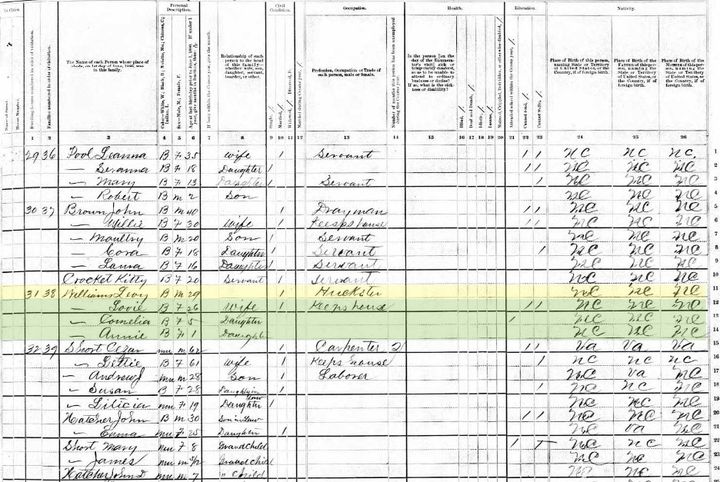
Benton Williams
A deed on file records that in 1851, Oak View owner Benton Williams purchased from a slave trader a woman named Isabella and her three sons: Levy, Walt, and Sandy. Isabella was 26 years old when she arrived at Oak View. Like Eliza, the Williams family would rely on Isabella’s labor and skills in the house, the kitchen, and the fields. She would have also taken care of her children and the other enslaved children at Oak View, Celia, Sam, and Patsey. Isabella would have been around 40 years old at the time of emancipation. Our research is ongoing, but so far we do not have any records that tell us about Isabella’s life in freedom.
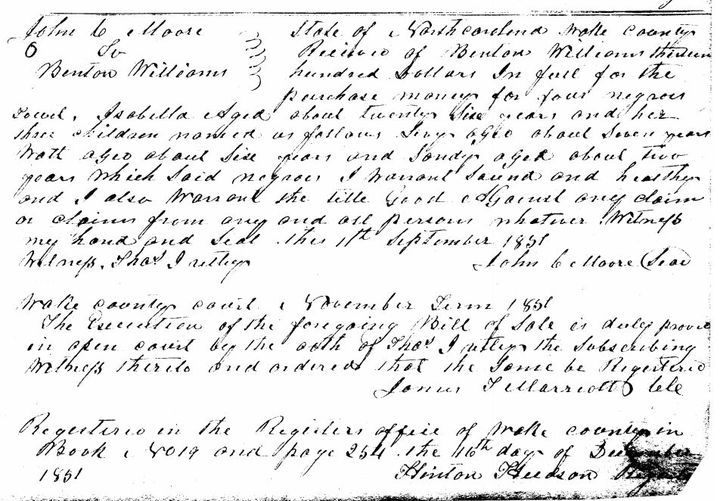
Walt Williams
Walt Williams arrived at Oak View in 1851 at the age of six, along with his mother, Isabella, and two brothers Levy and Sandy. Walt would have been about 20 years old at the time of emancipation. In 1867, Walt married Lucy Pace. By 1870, they had two children: a daughter Betty and a son named after Walt’s younger brother, Sandy. Eventually their family grew to seven children, and they also took in a niece and nephew. After emancipation, Walt worked as a sharecropper on the land of Clinton Williams. Through years of work and strategic household management, Walt purchased 39 acres of land from Clinton in 1877, next to Eliza and Reddick Hutchings’ parcel. In 1888, Walt purchased more land in Southwest Raleigh, near Macedonia Church. By 1900 he was listed as a widower, living with his daughter Delia and her three children.
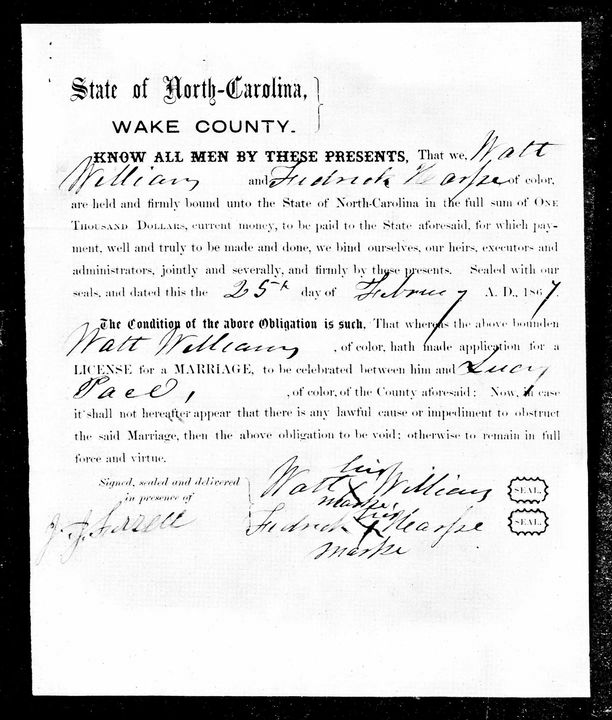
You can find more information and join the project as a volunteer here: https://www.wakegov.com/departments-government/register-deeds/wake-county-enslaved-persons-project

